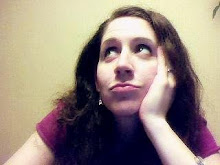Part Two shows us Alex in jail...like so many jail experiences, he becomes a number rather than a name. There is a two year gap between parts one and two and now Alex is a 17-year-old convicted murderer crammed into tight quarters but also having interesting encounters with the "charlie" (prison chaplain) and what Burgess calls "Religion". He writes honestly from his character's POV, rather than (seemingly) forcing his own views on organized religion onto Alex. His (Alex's) statements ring true and sincere, even though they might not be perceived as "good" by some.
After another violence-induced death, Alex gets to participate in an experimental treatment to "cure" him of his badness and will be released much sooner than originally sentenced. The treatment is watching films...or so he thinks...These images of violence are combined with the use of a drug that causes him to experience extreme physical illness so that he begins to associate violence with the illness. Eventually, this happens at the thought of violence without the drugs. Alex has been "reformed."
The "charlie" has two great quotes (really, more, but let's keep it simple, shall we?) about this new technique that really jump out at me as the voice of the author speaking to his readers. "When a man cannot choose he ceases to be a man." (Burgess, p. 93) "(And later...) "And yet, in a sense, to make an ethical choice, you have in a sense really chosen the good." (Burgess, p. 107)
I find it refreshing that the "charlie" is the man who sees the truth of the situation, rather than the reformers or the ultra-violent loving malchik protagonist.
At the close of part two, Alex is "reformed" and released to his former life and world...now what will happen? There's not much more I can say about this because I think that Burgess' writing is clear and well-written. The reader him/herself can form opinions within him/herself. Read on!
Subscribe to:
Post Comments (Atom)

No comments:
Post a Comment